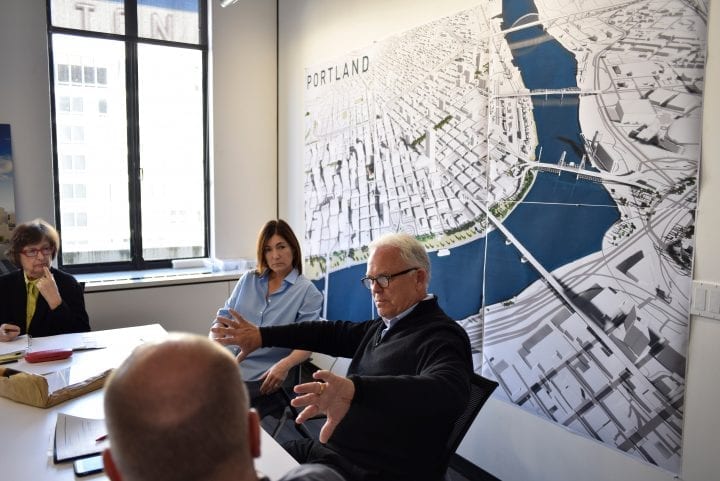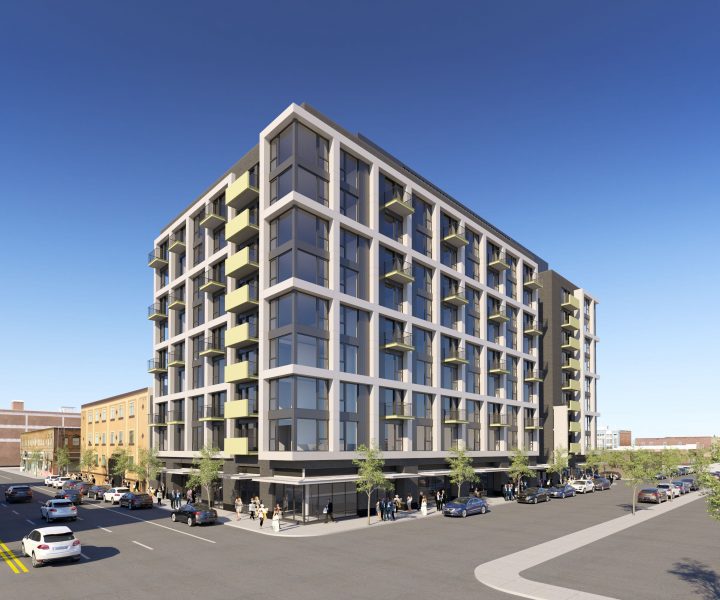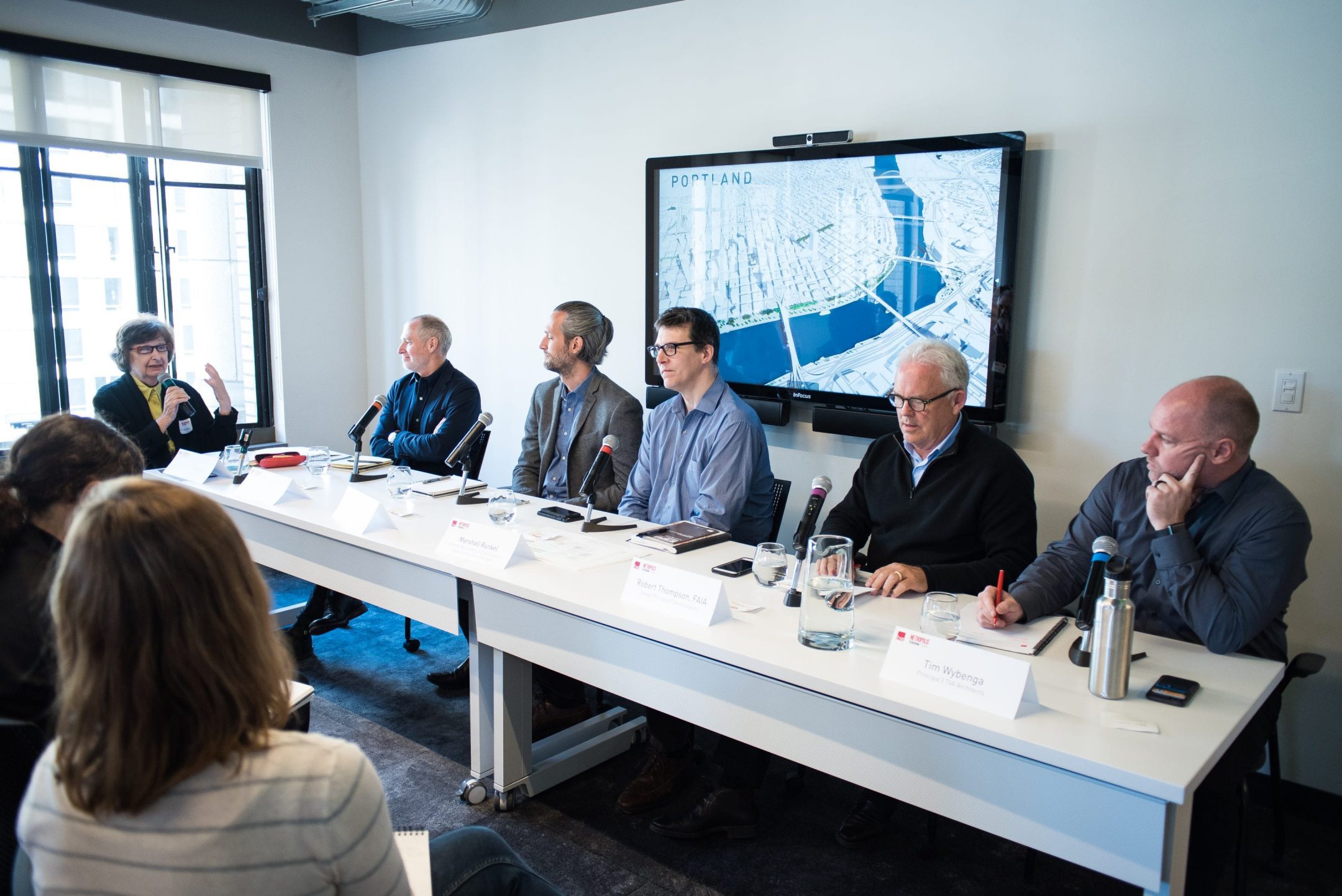
By Amara Holstein
In the Wake of Inclusionary Housing, What Needs to Happen Next in Portland
In the Portland offices of TVA Architects, Metropolis’s director of design innovation Susan S. Szenasy led a lively discussion on healthy solutions to affordable housing.
 The Think Tank discussion at TVA, Courtesy TVA Architects
The Think Tank discussion at TVA, Courtesy TVA Architects
As urban centers become ever more desirable places to live, the supply of affordable housing is decreasing exponentially. Portland, Oregon, is one of the many American cities struggling with the issue; the Portland Housing Bureau reports that annual rent increases are the highest in the country, with full-time minimum-wage workers needing to spend almost 80% of their income for average rent.
To combat this growing problem, Portland enacted an Inclusionary Housing policy in 2016 mandating that any residential building with more than 20 units provide 10-20% of units at below-market rates. The policy deterred developers, however, and scant few buildings have been proposed since that time. On May 9, in the Portland offices of TVA Architects, Metropolis’s director of design innovation Susan S. Szenasy led a lively discussion on healthy future solutions, as well as developer and market-led resistance, to affordable housing.
The solutions were framed within the changing definition of a city. As automobiles are slowly phased out of everyday life—with autonomous cars, car shares, and public transit aspiring to become the norm—urban planning will shift to fit. Nico Larco, an architecture professor at the University of Oregon and the Co-Founder of the Sustainable Cities Initiative (SCI), noted that location might not matter so much anymore, given the changing nature of transportation. Instead,
“what’s really going to matter is what’s the synergy, what’s the buzz, why do people want to be there.”
Yet even while people want to live in more diverse, equitable neighborhoods with active streetscapes, the biggest roadblock continues to be capital markets. “There’s a huge amount of inherent risk and a tremendous amount of illiquidity in real estate,” says developer Thomas Cody, principal at Project^ ecological development. “So it’s very slow to change. We’re trying to be disruptive by showing people that by thinking differently about real estate, we can be more profitable but also more resilient.” The panelists also discussed how risk-taking and collaboration between disciplines—real estate, architecture, government—were factors in this more innovative approach.
 Alder.9, a mixed-use project by TVA in Portland that would include residential units over ground-floor retail. Courtesy TVA Architects
Alder.9, a mixed-use project by TVA in Portland that would include residential units over ground-floor retail. Courtesy TVA Architects
Assuring developers of economic benefits to diverse neighborhoods—with a healthy mix of inclusionary housing—was also mentioned as being key. Marshall Runkel, chief of staff to city commissioner Chloe Eudaly, outlined some ideas, including collaborating with community institutions to buy land at lower costs; expediting permits; providing limited tax abatements; and working with corporations to build healthy communities.
“Really, the strategy behind inclusionary zoning is how do we create market conditions where this market segment can be built profitably by the market sector,” Runkel said.
It’s not all about cities, as Bob Thompson, a principal at TVA, reminded the audience.
“Working with the city, focusing on land costs and less expensive rents, providing infrastructure, upzoning these areas to build higher density, we reach out and focus on suburban locations still within the urban core to create the next layer of satellite communities.”
Which would then necessitate a broader reach of affordable public transportation.
Overall, the panelists felt that the future is bright for urban living, as Cody summed up when he said,
“I think cities hold the possibility of delivering on the American dream. Because they are sustainable and think about human ecology—access to education, the outdoors, reasonably affordable housing, diversity of people. And Portland is uniquely positioned to think carefully about and deliver what we need to thrive.”
The Think Tank discussions in Portland, Oregon, were held on May 9 and 10. The conversations were presented in partnership with Sunbrella, DXV/GROHE,Wilsonart, and DWR Contract.
